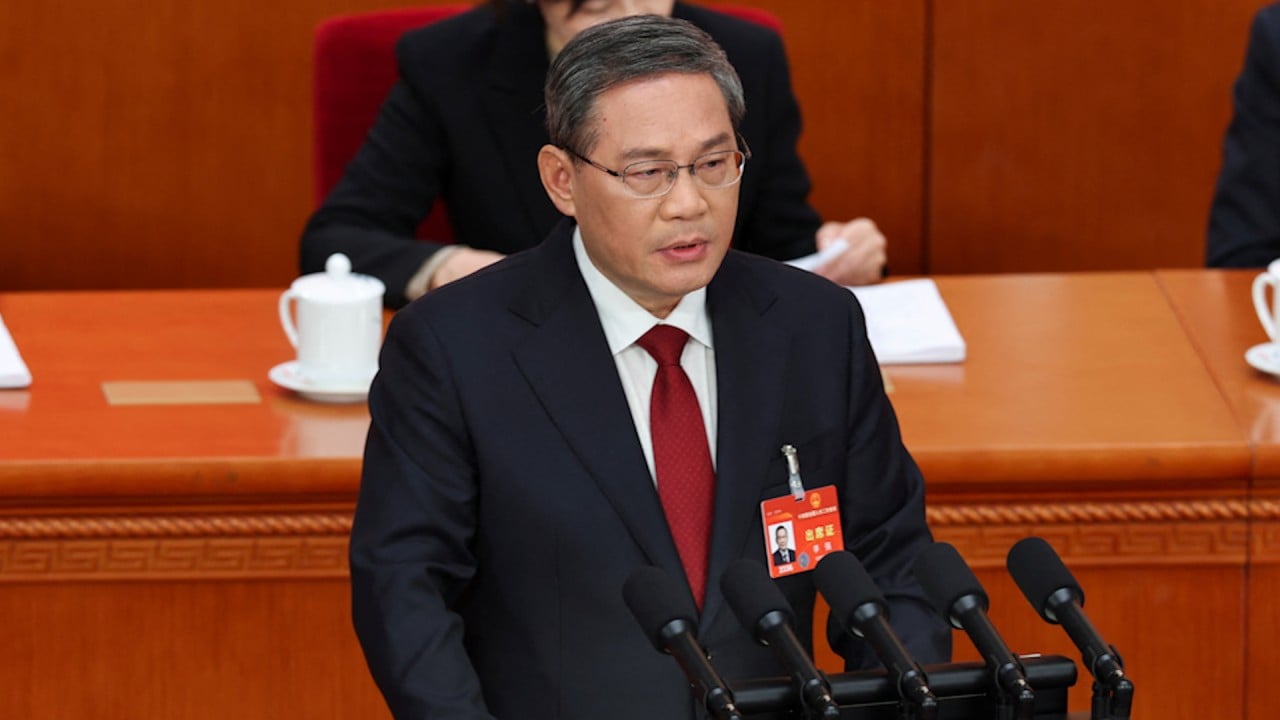China’s ‘two sessions’ 2024: did Premier Li Qiang’s speech move the needle for foreign, private business?
- Premier Li Qiang’s address during the opening of the National People’s Congress carried pledges to safeguard status of foreign and private businesses
- But without enough action to effect a change, analysts say, those promises may not be enough to restore confidence and retain investment

02:40
Chinese Premier Li Qiang delivers his first work report amid concerns about state of the economy
Beijing is angling to revive confidence in private entrepreneurs and foreign investors via a renewed campaign for a unified national market and better business environment – an essential task to fulfil its ambitious expansion target of around 5 per cent and ensure economic stability in 2024.
“State-owned enterprises, private businesses and foreign-funded companies all play an important role in China’s modernisation drive,” said Li during the opening of the National People’s Congress, the country’s highest legislature.
Chinese authorities will remove existing restrictions on foreign investment in manufacturing and allow a wider footprint in China’s telecommunications and medical sectors, as well as government procurement, he said.
“We will strengthen services for foreign investors and make China a favoured destination for foreign investment,” the premier said. “We will make it easier for foreign nationals to work, study and travel in China.”
What overseas investors and the private sector want is not just words, but big, deafening initiatives
Foreign businesses are an important source of China’s technological expertise and a secondary line of communication for the country’s external relations, and the domestic private sector employs a vast majority of the workforce and contributes more than 60 per cent to national gross domestic product.